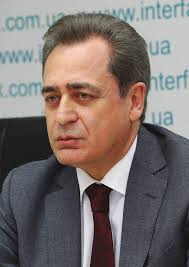Chinese initiatives fail finding support in Ukraine
In the times of 2008 financial crisis, which seriously affected China’s economy, PRC Prime Minister Wen Jiabao visited range of Eastern European countries and made a conclusion that whese countries were not so dependent on financial fluctuations of the worldwide system/ As a result, Chinese government announced a new initiative, and Poland and Hugary signed bilateral framework agreements on cooperation with PRC. This way, a platform, which later merged into “16+1” format, emerged. At that moment, within the framework of this “platform”, there were some productive meetings on the level of heads of ministries of transport, economy, trade and also heads of political institutions of member states. The “One Belt, One Road” building was included on the list of the most important task that new Chinese government faced, presided over by Xi Jinping, who just came to power. Implementation of this initiative became a focusing issue in foreign activity of PRC in 2015 and current year.
In this situation, “delicacy” regards the fact that such initiatives are used by Chinese government without any specific tasks and goals. Strategic position is determined by Chinese Communist party, and the rest id formed by interests of states that joined the new “platform”. Once again, Ukraine hasn’t reacted to the signal for closer and more practical cooperation and remains outside the “16+1” format.
Lately, Ukrainian political and expert circles tend to make Ukraine not avoid the “Silk Road”. There were even parliamentary hearings and a range of not so successful conferences on this issue. However, they proved the fact that they don’t understand the phenomena of “Eastern delicacy”. Ukraine should not seek the approval of “16+1” member states, it should actively get in the development of PRC Head Xi Jinping initiative “One Belt, One Road”. Our country , possessing sea ways and air passages between the East and West can, and should make its contribution to minimizing spending on transportation of manufactured goods and products. The platform of “One belt” needs certain projects. For example, it may be and investment of $75 million for the construction of modern grain terminal at Mykolayiv sea port provided by Chinese state corporation COFCO.
PRC, as one of the biggest trade partners of Ukraine, gradually opens its market for agricultural goods, (grain, oil, meats, dairy and others). Chinese trade strategy for agricultural sphere implies not the separate contracts on export-import operations, but the implementation of long-term cooperation programs with partners from different countries and forming sustainable channels for diversification of provision and raw materials supply for its own huge market and for South-East Asia markets.
On this basis, Ukrainian government should aim the efforts of state companies and regional state administrations on implementing of the business projects for creating big logistical complexes, container hubs, industrial and agricultural parks. Such projects might have real chance to involve financial and investment resources from Chinese state corporations, funds and private companies as they correspond with the goals implied and initiated by state’s government.
The efforts of Ukrainian companies may have real effect in case of implementation of such initiatives:
-phased transition of Ukrainian railroads to the EU standarts;
-launch of new high-speed trains;
-revival of seaports and sea ways, irrigation and reclamation systems;
-production of specialized rail cars and transportation means for transporting grain and oils crops;
-infrastructure projects in maritime and river ports;
-recycling and utilization complexes for industrial and household waste.
Aforecited projects may have mutual synergy as an active signal to the administrations of both countries in dialogues, on both intergovernmental and high political level.
Ukrainian side should also timely vocalize the initiative to start consultations concerning phased introduction of free-trade regime. PRC is close to completion of negotiations regarding Free-trade zone with Georgia (September 14, a message about completion of negotiations appeared). The meetings on free-trade zone establishment with experts from Moldova have started too. In a short term, eastern countries like China and South Korea will cover over 70% of world economic zones with facilitated or free trade regimes for product and goods transportation.
Moreover, it is necessary to intensify and develop cultural and educational connections, as well as mutual cooperation in touristic and medical sphere. These directions need to obtain proper attention, and they are, of course, the basis for “One Belt One Road” initiative.
Mykhailo Reznyk,
member of the UFPA board of directors, Extraordinary and Plenipotentiary ambassador, President of the Ukrainian Motor Vehicle Manufacturers Association “Ukrautoprom”


Leave a comment